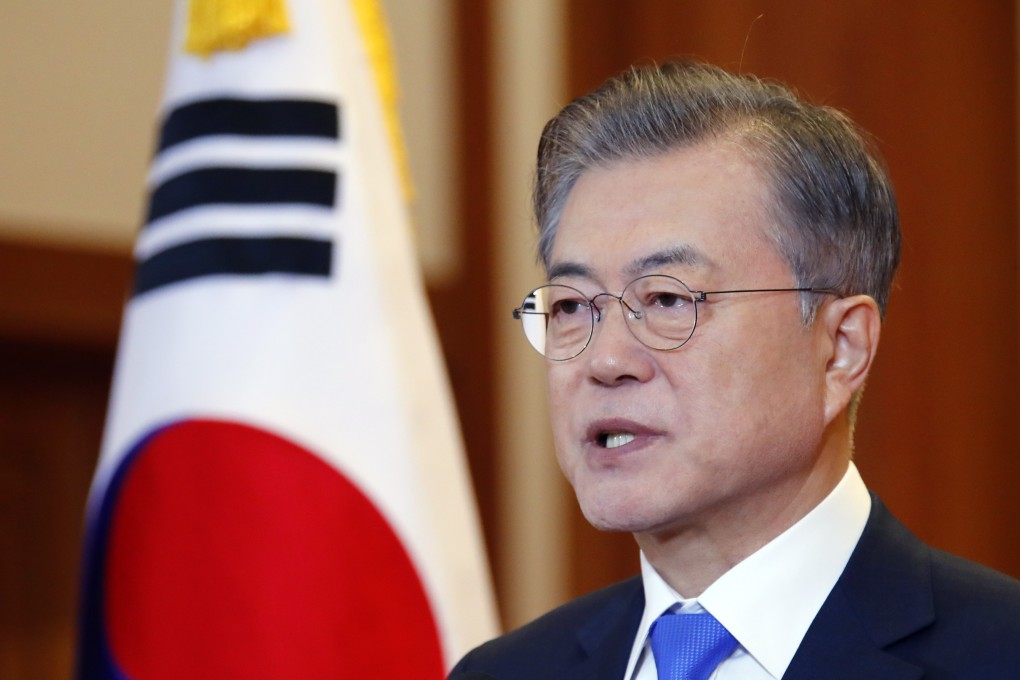Moon Jae-in urges North Korea to take ‘bold measures’ to denuclearise but insists US must take ‘reciprocal’ steps of its own
- Moon said the recent visit to Beijing by the North’s leader Kim Jong-un indicated a second summit with US President Donald Trump was imminent
- He also acknowledged the agreement between Kim and Trump at their first summit in Singapore last year was ‘somewhat vague’

South Korean President Moon Jae-in on Thursday urged North Korea to take “bold, practical measures for denuclearisation” but also called for the US to take “reciprocal” steps of its own.
“Corresponding measures must be devised in order to facilitate North Korea’s continued denuclearisation efforts,” Moon said during his New Year address, urging the US to agree a “peace regime” and a formal end to the 1950-53 Korean war.
“In order for the sanctions to be eased, the North needs to take substantive denuclearisation measures,” Moon said. “On the other hand, it is also necessary for the United States to take reciprocal steps in order to encourage the North to move forward.”
In order for the sanctions to be eased, the North needs to take substantive denuclearisation measures
The US has insisted upon North Korea’s “complete, verifiable and irreversible” denuclearisation, whereas Pyongyang pursues a “phased and synchronised” and quid pro quo approach, calling for sanctions relief and an end-of-war declaration before moving toward the establishment of diplomatic ties.